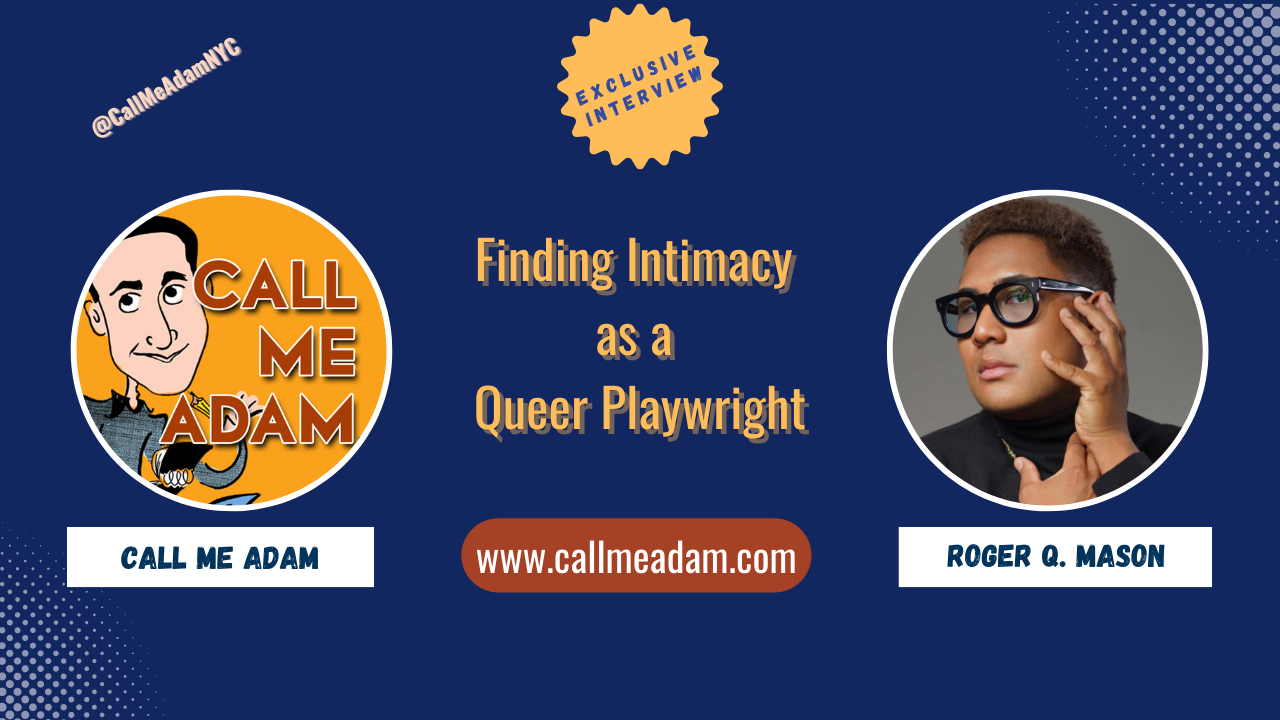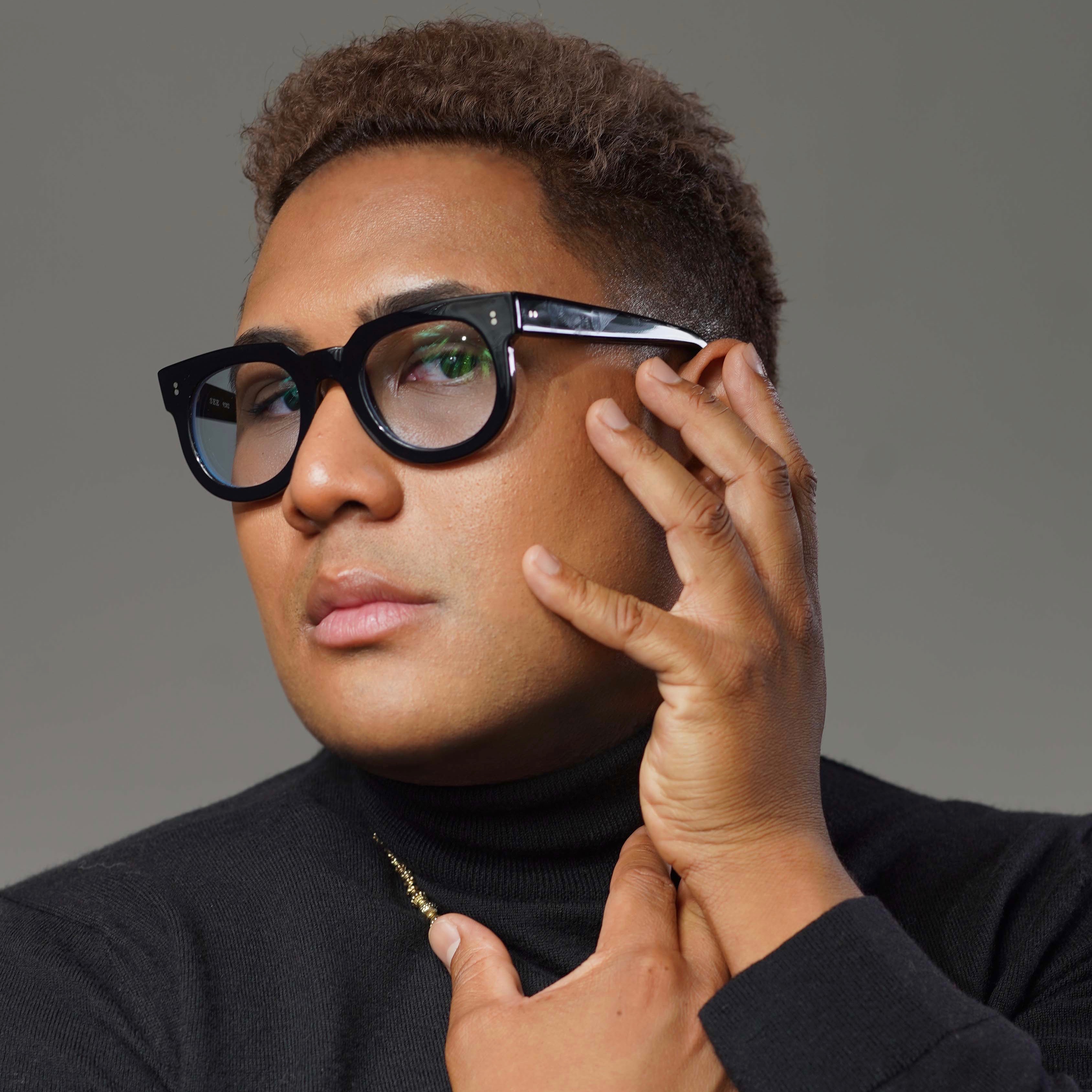Call Answered: Roger Q. Mason Interview: Finding Intimacy as a Queer Playwright
Mar 11, 2023
Queer playwright Roger Q. Mason has been on my radar for some time now. I love how they are bringing a new voice to American Theatre.
Roger is writing stories about queer love, intimacy & people of color. They are expanding the playing field in a much needed way.
In this interview, Roger reveals:
- What it means to have a developmental reading of a new play
- How they came to write The Pink
- The boundaries Roger puts up while writing
- How they decompress after writing a play
- Something new about themself
Roger's newest play, THE PINK, is receiving a developmental reading with Primary Stages on Monday, 4/3/23 at 7pm at 59E59 Theaters (59 E 59th St, New York, NY 10022). This reading is FREE & open to the public. Reserve your seat today!
THE PINK is a hook up performed in real time between two queer people of color seeking true intimacy in the age of dating apps and digital sex. As these two humans, Mel and Herman, grasp for “the real” in the bedroom, their conversations, silences, and moments of touch blur the lines between affection, sex, and euphoric romance.
Connect more with Roger Q. Mason: Website, Instagram
 Photo Credit: Jason Armond for The Los Angeles Times
Photo Credit: Jason Armond for The Los Angeles Times
1. This April you are presenting a developmental reading of your new play The Pink: An Intimacy Ritual, about a hookup between 2 Queer people of color seeking true intimacy in the age of dating apps and digital sex. Before we get into the intricacies of play, can you first explain, for those who might not know, what a developmental reading is & how this fits into the process of getting your play fully mounted? First of all, thank you so much for taking the time to speak with me, Adam. I'm a huge fan of yours and this is such an exciting opportunity.
A development reading really is what you make it. Plays are performance texts: blueprints for live events to be embodied before an audience in real time - not just two dimensional pieces of literature.
There comes a time (or several times) before a production of a play where the writer wants to put the script on its feet and see how the blueprint functions as a framework for performance. At the time of the reading, the writer will determine how to focus their development process to align with specific creative goals. For example, someone might want to explore how physical action functions in a play, or the effectiveness of a character they've just written into a script, or even the role of lighting (as explained in stage directions). The developmental reading is the time to explore those questions.
2. What clarity, feedback or guidance are you looking to receive from this developmental reading? The Pink centers on the healing that human touch can provide to two queer folks looking for validation, companionship and gentleness. In this developmental reading, I'm investigating the effectiveness of these two characters' journey towards intimacy from one scene to the next. I've expanded the piece quite a bit over the past five drafts and I want to see what beats crave further discovery.
3. How did you come to write this play? I've threatened to write this play many times, but recent self-clarity and confidence have granted me the emotional space to tell this story in a way that feels honest, true, and right for the moment.
In some respects, The Pink is an extension of my work with Lavender Men. That piece imagined a queer person of color who is ignored by those in whom they have romantic interest. Now in The Pink, we go to the bedroom, and new questions and problems arise. The subject of The Pink is not the same character as our narrator in Lavender Men, but it is a similar archetype. I am writing this work and other pieces like it so people like me have a place on our stages. My larger mission is to build plays for black, plus sized queer folks. If I have my way, we will be the new protagonists of the American Theatre.
4. What do you hope audiences walk away with after seeing this reading? Everybody needs love. Everybody deserves love. And, with faith, self-assuredness and patience, there is truly someone for everyone.
 Photo Credit: Sara Martin
Photo Credit: Sara Martin
5. What did you learn about yourself from writing this play? I learned that each of my intimate partners was a great teacher. I gleaned something about myself and the world around me through each and every romantic interaction I've had - good, bad and indifferent.
The plot of this piece is based upon a few evenings I've shared with others. This isn't my ode to one man, honey - I'm putting a couple of folx on blast. Haha!
But jokes aside, my relationship to intimacy has been a journey earned through fire. I grew up in the late 80s and early 90s in a household that stigmatized my relationship to queerness, queer intimacy, and femme identity. It has taken me many years to heal from those wounds. And those formative years affected the person I was bringing to the bedroom. I had to heal myself before I could share myself fully and openly with someone else.
I healed as I dated. I healed with my dates. I healed in retrospect after the dates. But truly, every romance has been an education.
6. I saw an interview once with Celine Dion where she said that she doesn't talk between shows when she is on tour to help preserve her voice. She writes everything down during those times. What kind of barriers do you put up when you are writing a show to help stay focused? I sit in a neutral room and turn on one song. I play it over and over again till it becomes white noise. I can always tell if I have found the spirit of the play when I find my song. And I just keep dreaming on the page till a draft is done.
The first draft is the most fun for me because it's messy, unknowing, and completely low pressure. I used to be afraid of the first draft because I wanted to get things right in the beginning. Everything was precious then. Not anymore. That first draft is one of many. I'll have so many opportunities to revise and refine a piece in its creative lifetime. So, it's about staying present and playing, and - most importantly - living in abundance.
7. How do you decompress after writing a show? I go to the ballet. Not many people know this, but I derive a lot of my inspiration from dance performance. It is meditation, rejuvenation and recalibration for me. So, if you see me at the Joyce in Chelsea, I'm recovering from a show (or getting ready for another one).
8. What is something we didn't get to talk about that you'd like my readers to know about you? I make some of the best Texan beef chili you'll ever taste, especially when I have a draft due. Cooking is how I brainstorm and how I write. Writing isn't always about typing or scribbling on a napkin. It is the metaphysical act of identifying who a character is, what they need, and how they will beat the odds to get it. You can do that while walking your dog, cooking a meal, eavesdropping on a fight on the train, or drinking water while your mind is open. Writer Aaron Henne taught me that idea of writing many years ago and it has been my great liberation: knowing that so long as I am making narrative meaning in the world, I am writing.
 Photo Credit: Michael Alvarez
Photo Credit: Michael Alvarez
More on Roger Q. Mason:
Roger Q. Mason is a writer and performer who uses the lens of history to disrupt the biases that divide rather than unite us. Their playwriting has been seen on Broadway (Circle in the Square Reading Series); Off and Off-Off-Broadway; and regionally. Roger's World Premiere of Lavender Men was lauded by The Los Angeles Times as "evoking the mingled visions of Suzan-Lori Parks, Jeremy O. Harris and Michael R. Jackson."
As a filmmaker, Roger has been recognized by the British Film Institute, Lonely Wolf International Film Festival, SCAD Film Festival, AT&T Film Award and Atlanta International Film Festival. Their films have screened in the US, UK, Poland, Brazil, and Asia.
Roger holds degrees from Princeton University, Middlebury College, and Northwestern University. They are a member of the Dramatists Guild of America and Ma-Yi’s Writing Lab, as well as an alum of Page 73’s Interstate 73 Writers Group and Primary Stages Writing Cohort.
Roger has co-hosted the podcast Sister Roger’s Gayborhood and hosted This Way Out Radio's Queerly Yours: Portraits in Courage. They are a lead mentor of The Marsha P. Johnson Institute’s Starship Fellowship, the New Visions Fellowship and the Shay Foundation Fellowship.
Follow Roger on Instagram: @rogerq.mason

%20(2).jpg)
